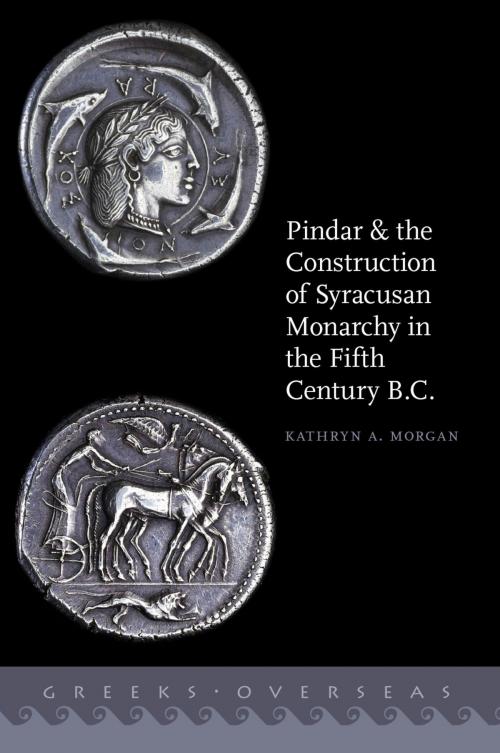Pindar and the Construction of Syracusan Monarchy in the Fifth Century B.C.
Fiction & Literature, Literary Theory & Criticism, Ancient & Classical, Nonfiction, History, Ancient History, Greece| Author: | Kathryn A. Morgan | ISBN: | 9780190266615 |
| Publisher: | Oxford University Press | Publication: | February 2, 2015 |
| Imprint: | Oxford University Press | Language: | English |
| Author: | Kathryn A. Morgan |
| ISBN: | 9780190266615 |
| Publisher: | Oxford University Press |
| Publication: | February 2, 2015 |
| Imprint: | Oxford University Press |
| Language: | English |
This groundbreaking book attempts a fully contextualized reading of the poetry written by Pindar for Hieron of Syracuse in the 470s BC. It argues that the victory odes and other occasional songs composed by Pindar for the Sicilian tyrant were part of an extensive cultural program that included athletic competition, coinage, architecture, sanctuary dedication, city foundation, and much more. In the tumultuous years following the Persian invasion of Greece in 480, elite Greek leaders and their cities struggled to capitalize on the Greek victory and to define themselves as free peoples who triumphed over the threat of Persian monarchy. Pindar's victory odes are an important contribution to Hieron's goal of panhellenic pre-eminence, redescribing contemporary tyranny as an instantiation of golden-age kingship and consonant with best Greek tradition. In a delicate process of cultural legitimation, the poet's praise deploys athletic victories as a signs of more general preeminence. Three initial chapters set the stage by presenting the history and culture of Syracuse under the Deinomenid tyrants, exploring issues of performance and patronage, and juxtaposing Hieron to rival Greek leaders on the mainland. Subsequent chapters examine in turn all Pindar's preserved poetry for Hieron and members of his court, and contextualizes this poetry by comparing it to the songs written for Hieron by Pindar's poetic contemporary, Bacchylides. These odes develop a specifically "tyrannical" mythology in which a hero from the past enjoys unusual closeness with the gods, only to bring ruin on him or herself by failing to manage this closeness appropriately. Such negative exemplars counterbalance Hieron's good fortune and present the dangers against which he must (and does) protect himself by regal virtue. The readings that emerge are marked by exceptional integration of literary interpretation with the political/historical context.
This groundbreaking book attempts a fully contextualized reading of the poetry written by Pindar for Hieron of Syracuse in the 470s BC. It argues that the victory odes and other occasional songs composed by Pindar for the Sicilian tyrant were part of an extensive cultural program that included athletic competition, coinage, architecture, sanctuary dedication, city foundation, and much more. In the tumultuous years following the Persian invasion of Greece in 480, elite Greek leaders and their cities struggled to capitalize on the Greek victory and to define themselves as free peoples who triumphed over the threat of Persian monarchy. Pindar's victory odes are an important contribution to Hieron's goal of panhellenic pre-eminence, redescribing contemporary tyranny as an instantiation of golden-age kingship and consonant with best Greek tradition. In a delicate process of cultural legitimation, the poet's praise deploys athletic victories as a signs of more general preeminence. Three initial chapters set the stage by presenting the history and culture of Syracuse under the Deinomenid tyrants, exploring issues of performance and patronage, and juxtaposing Hieron to rival Greek leaders on the mainland. Subsequent chapters examine in turn all Pindar's preserved poetry for Hieron and members of his court, and contextualizes this poetry by comparing it to the songs written for Hieron by Pindar's poetic contemporary, Bacchylides. These odes develop a specifically "tyrannical" mythology in which a hero from the past enjoys unusual closeness with the gods, only to bring ruin on him or herself by failing to manage this closeness appropriately. Such negative exemplars counterbalance Hieron's good fortune and present the dangers against which he must (and does) protect himself by regal virtue. The readings that emerge are marked by exceptional integration of literary interpretation with the political/historical context.















